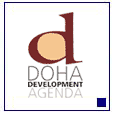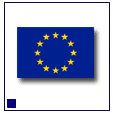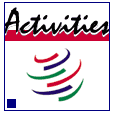- home
- resources
- focus newsletter
- focus 61

Dr. Supachai welcomes 揺ncouraging political signals?for Doha progress back to top
Director-General Supachai Panitchpakdi, at the
General Council meeting (Word document, 2 pages, 21KB) on 17-18
May, urged trade negotiators 搕o show the world that Geneva is capable
of delivering significant results? He said that 搘e have a window of
opportunity but it is a small one and closing rapidly?
In his report as Chairman of the Trade Negotiations Committee, Dr.
Supachai said that since the April TNC meeting, a number of
developments have demonstrated 揳 new level of political will to make
progress?in the negotiations. These include 搕he outcome of the LDC
Ministers' meeting in Senegal...the initiatives by Commissioners
Pascal Lamy and Franz Fischler set out in their letter to all
Ministers..and most recently, the discussions that have taken place in
the context of the OECD Ministerial meeting in Paris?
The Chairman of the General Council, Ambassador Shotaro Oshima
(Japan), said he 搒hared very much the Director-General's cautious
optimism that we seem to be making the kind of progress in key areas
tha allows us to hope for agreements at a framework level by July?
The Acting Managing-Director of the IMF, Ms. Anne Krueger, made a
presentation on the IMF's new initiative for developing countries: the
Trade Integration Mechanism. She stressed that 揻or the vast majority
of countries, the benefits of a Doha agreement would be, as they would
be for the global economy as a whole, overwhelmingly positive and even
in the short-term? Ms. Krueger said that the Mechanism is like an
搃nsurance policy?to provide reassurance to governments.
Dr. Supachai welcomed the IMF's intiative as 揳 welcome contribution
to the Doha Round, in particular to attaining ambitious market access
results?He said the Mechanism 揷an help reassure low income
developing countries that they will receive assistance from the
international community to help them deal with adjustment difficulties
they encounter from the loss of trade preferences which will result
from the lowering of MFN tariffs at the end of the Doha Round?
> Opening
and closing remarks by the Director-General and General Council
Chairman (Word format 6 pages; 68 KB)
> Statement
by the Director-General
> Statement
by the IMF
Dr. Supachai, in a speech
during the opening of the Conference of the African Union Ministers of
Trade on 27 May in Kigali, Rwanda, said that the meeting will be
損ivotal?in determining whether the trade negotiations 搘ill take a
substantial step forward by the end of July? He stressed that 搉o one
questions?that development concerns must be reflected in the July
package.
President Paul Kagame of Rwanda, in his
speech,
said that 搃n Africa today, we recognise that trade and investment,
and not aid, are pillars of development. We are all turning to trade
as the engine for our growth and development after many decades of
donor-aided development that failed to make an impact on our
economies, mainly because it was not aimed at building a basis for
market-driven economic growth anyway?
During the Third LDC Trade Ministers?Meeting in Dakar, Senegal on 4
May, Director-General Supachai in his
address stressed that
搉ow is the time for all WTO members to show realism, flexibility and
a determination to make progress?in the negotiations. He warned that
揳 loss of momentum will have a direct impact on the areas in which
LDCs have a key interest?

WTO BODIES
WTO Agreement extended to the 10 new member States of the European Unionback to top
The WTO抯 Government Procurement Agreement was extended on 1 May to
cover the 10 new member States of the European Union: the Czech
Republic, Cyprus, Estonia, Hungary, Latvia, Lithuania, Malta, Poland,
the Slovak Republic and Slovenia.
The WTO Committee on Government Procurement approved on 23 April the
necessary modifications to the EU schedules extending coverage of the
GPA to the new member States of the European Union. The GPA is now
legally binding for those countries. The extended GPA coverage offers
new procurement opportunities to suppliers of goods and services in the
10 new EU countries as well as in the other GPA members.
> More
Meanwhile, the WTO Import Licensing Committee on 5 May reviewed
31 notifications submitted under various provisions of the agreement, a
situation some members described as an improvement but still
unsatisfactory.
The committee抯 main function is currently transparency and review, and
as usual, the main purpose of this hour-long meeting was information on
members?import licensing procedures. On the table were six questions or
replies to questions, and 31 notifications from 21 members. Delegates
spoke on a handful of these.
The chairperson continued her efforts ?and her predecessors?and the
Secretariat抯 ?to encourage members to notify their import licensing
measures. This includes notifying if they have no import licensing
requirements at all.
> More
TECHNICAL COOPERATION
Fifth introduction course on the WTO for LDCs opens in Geneva
back to top
The 5th Introduction Course on the WTO for Least Developed Countries,
organized by the Institute for Training and Technical Cooperation of
the WTO, opened on 24 May and will end on 11 June.
Twenty representatives of least developed African, Caribbean, Asian
and Pacific countries are attending this course, which is organized in
French at WTO headquarters. The three-week programme is being held at
a key moment in the process of relaunching negotiations within the
framework of the Doha Development Agenda.
> More
The WTO is introducing online courses for governments officials
from developing countries with the inaugural course 揑ntroduction to
the WTO and its Basic Principles?starting on 21 June 2004.
The courses are delivered through the internet using distance learning
technologies that allow interaction between participants and WTO
tutors. Government officials from developing countries can participate
in the WTO on-line training regardless of their work location.
The inaugural course is entitled 揑ntroduction to the WTO and its
Basic Principles?and will be held in English. The objective of the
course is to familiarize participants with the World Trade
Organization, the multilateral trading system and its legal framework.
> More
The United States Government, on 14 May, pledged a contribution of US$
994,100 (CHF 1.3 million) to the Doha Development Agenda Global Trust
Fund for 2004.
The United States?contribution will be used to strengthen the
technical capacity of developing
countries to assess their interests and to participate in market
access negotiations and in the WTO抯 work on trade facilitation.
揑 am extremely grateful to the United States for helping developing
countries,?said WTO Director-General Dr. Supachai Panitchpakdi. 揟he
WTO抯 technical assistance activities play an important role in
facilitating the understanding and implementation of the Agreements,
precisely at this time in the negotiations when we have a foundation
for future work.?br>
The United States is the fourth biggest voluntary contributor to WTO
technical assistance activities since 1995, with a total of CHF 8.5
million.

The WTO Appellate Body, on 7 May 2004, issued its Annual Report for 2003 (Word format, 43 pages, 698KB) containing information about changes in the composition of the Appellate Body, appeals filed, Reports circulated, participation of WTO members in appeals, amendments to the Working Procedures, technical assistance and other developments that took place last year. The Annual Report was accompanied by a Communication (Word format, 1 page, 41KB). from the AB Chairman to the DSB Chair.

WTO activities back to top
Director-General Supachai, in his
opening statement on 25
May at the WTO public symposium 揗ultilateralism at a Crossroads?
said that trade negotiators are facing a 揾istoric window of
opportunity?and urged civil society to add their voice in WTO's work
to 揻urther improve and reform the multilateral system?
He concluded: 揟he time has come to show that you can live up to that
responsibility, as some of you already did after the unfortunate
outcome of the Cancun Ministerial Conference. Over the years,
familiarity with the multilateral trading system has grown. Many of
the organizations here today have built up a tremendous network of
knowledge and resources. I urge you to use your knowledge and
experience in a responsible way, to the longer term benefit of the
system and its Members. The WTO is at work again, determined to
further improve and reform the multilateral system, to the benefit of
its Members and their constituents. I see no reason why you should not
add your voice to that.?br>
In his foreword to the WTO
Annual Report 2004 issued on 26 May, Dr. Supachai said that this
and the organization's three other annual publications are 損art of
the WTO's continuing efforts to work in a manner which is transparent,
informative and in tune with the expectations of the public around the
world?
